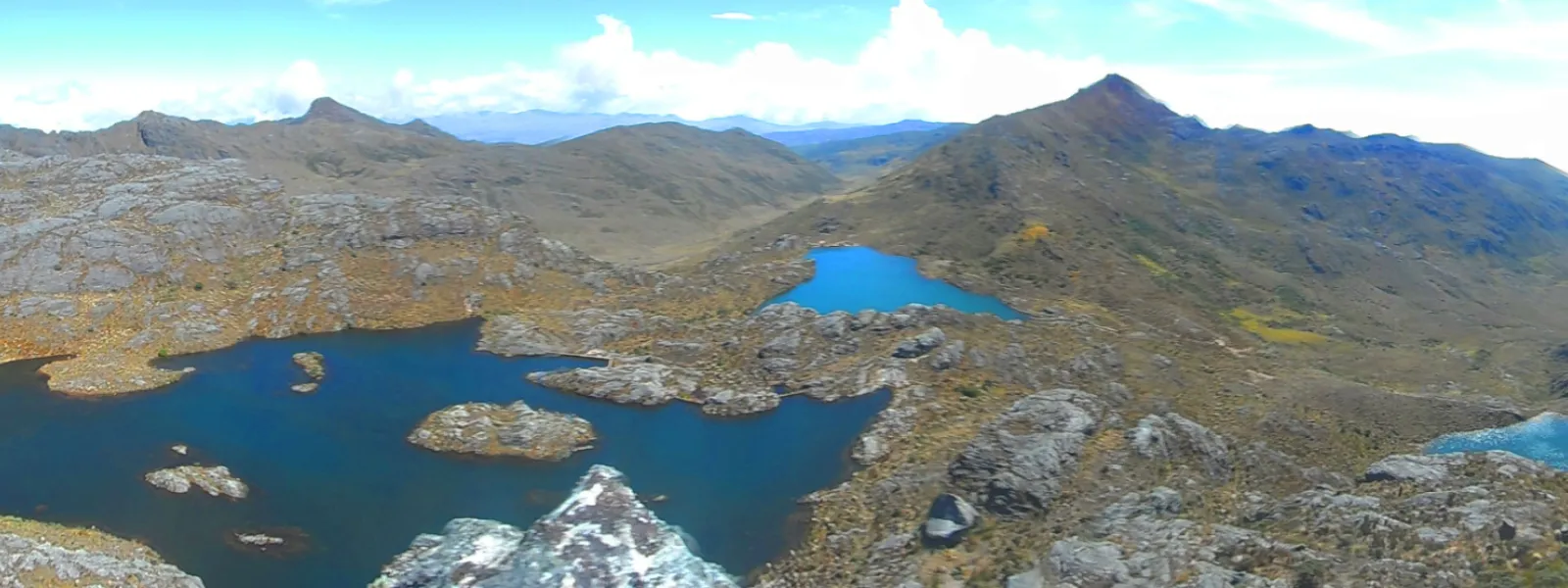
World Bank divests from Eco Oro Minerals and mining project in Colombian Páramo
Photo: Alberto Peña KayIn an important step for the protection of Colombia’s páramos, the International Finance Corporation (IFC) – the private lending arm of the World Bank – has decided to divest from Canadian mining company Eco Oro Minerals. The company’s Angostura gold mining project is located in the Santurbán Páramo, a protected ecosystem that provides water to millions of people.
Bogota, Washington, Ottawa, Amsterdam. The International Finance Corporation (IFC), private lending arm of the World Bank Group, has decided to divest from Canadian company Eco Oro Minerals. The company’s Angostura mine is located in Colombia’s Santurbán Páramo, a protected high-altitude ecosystem that provides water to millions of people. Colombian law prohibits mining in páramos.
"We applaud the Bank’s decision to side with the Committee for the Defense of Water and the Santurbán Páramo regarding the inviability of mining in the páramo," said Alix Mancilla, representative of the Committee. "We now call on the Colombian government to abstain from issuing environmental permits to any mining project which may affect Santurbán."
"The IFC’s divestment is a serious political and financial blow to mining in the Santurbán páramo," said Carlos Lozano Acosta of the Interamerican Association for Environmental Defense (AIDA). "The Colombian government must now reflect on its lenient approach to large scale mining in páramos, which is illegal under national law."
The IFC’s decision comes after a report issued by the Office of the Compliance Advisor Ombudsman (CAO), an independent accountability mechanism, which found that the IFC's investment did not adequately consider the environmental and social impacts of the project, breaching the financial institution's internal policies.
The report was developed in response to a complaint the Committee filed before the CAO in 2012, with support from the international organizations included herein.
"After intense public pressure, the IFC finally got the message and, by divesting, amplifies it further. The decision to divest strengthens the Colombian State’s ability to protect water and regulate in the public interest. We applaud this decision by the IFC, which will have an impact on Colombians everywhere," affirmed Carla Garcia Zendejas of the Center for International Environmental Law (CIEL).
The IFC's decision occurs in the context of Eco Oro’s announcement that it has initiated international arbitration against Colombia, under the terms of the Canada-Colombia Free Trade Agreement at the International Centre for Settlement of Investment Disputes (ICSID), part of the World Bank. The company is filing the suit over the State’s measures to protect Colombia’s páramos.
"Eco Oro Minerals' interest in Colombia is no longer about mining. Rather, it is about extorting a sovereign government for millions in taxpayer dollars and exerting pressure to weaken protections for water in Colombia. The IFC’s divestment not only extricates the Bank from a clear conflict of interest, but also highlights the presence of ill-advised mining projects in the Colombian páramo and the illegitimacy of the suit," added Garcia Zendejas of CIEL.
